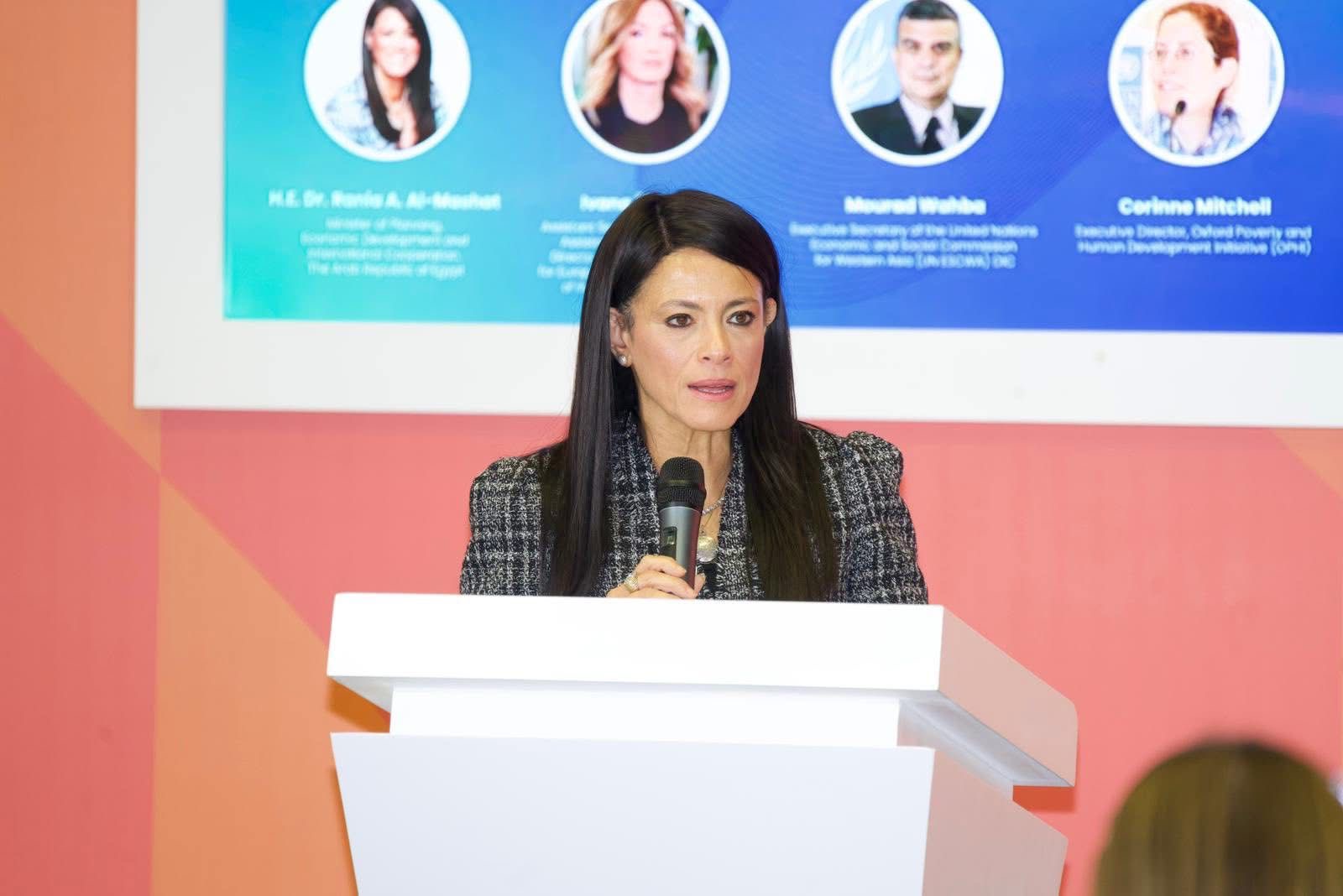• The need to expand innovative solutions to bridge the global social protection financing gap and maximize the efficient use of resources in human development sectors
The Ministry of Planning, Economic Development, and International Cooperation, in cooperation with the United Nations Development Programme (UNDP), organized a high-level event on social protection and economic development during the Second World Summit on Social Development, in which the Arab Republic of Egypt participates with a delegation headed by H.E. Dr. Mostafa Madbouly, Prime Minister, on behalf of H.E. President Abdel Fattah El-Sisi.
The event was attended by H.E. Dr. Rania Al-Mashat, Minister of Planning, Economic Development, and International Cooperation, Dr. Mourad Wahba, Acting Executive Secretary of ESCWA, Mr. Carsten Staur, Chair of the OECD Development Assistance Committee (DAC), and Mr. Fahad Al-Sulaiti, Director General of the Qatar Fund for Development.
In her remarks, H.E. Dr. Rania Al-Mashat stated that Egypt places social protection and investment in human capital as key pillars for achieving economic development, through their pivotal role in strengthening resilience and achieving equitable and inclusive growth. She explained that the government has moved from the concept of protection to empowerment through a clear strategy for the economic empowerment of low-income families, enabling them to improve their living standards and increase their income levels.
H.E. noted that estimates by the International Labor Organization indicate that the global financing gap for social protection amounts to $1.4 trillion annually, underscoring the need for innovative and equitable solutions to expand the fiscal space available to countries, explaining that Egypt is working to expand these mechanisms through cooperation with international partners in implementing programs related to human development and increasing investments in the health and education sectors. In this regard, Egypt continues to implement debt swap mechanisms with Germany and Italy, as well as investment guarantee mechanisms that enable the private sector to expand its investments in key sectors.
Dr. Al-Mashat further pointed out the “Egypt’s Narrative for Economic Development”, launched by the government last September, works to localize development across governorates and strengthen regional planning efforts, and places citizens at the forefront of its priorities through commercial, industrial, and investment policies that reinforce development efforts, contribute to maintaining economic stability, and support the transition to higher-productivity sectors, thereby providing more job and employment opportunities.
H.E. also highlighted the “Takaful and Karama” program, which has become a model sought by international institutions for replication in several countries around the world, given its role in advancing social protection efforts and empowering low-income groups.
